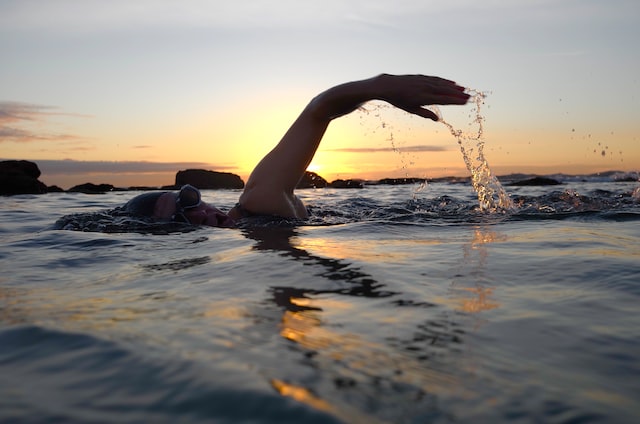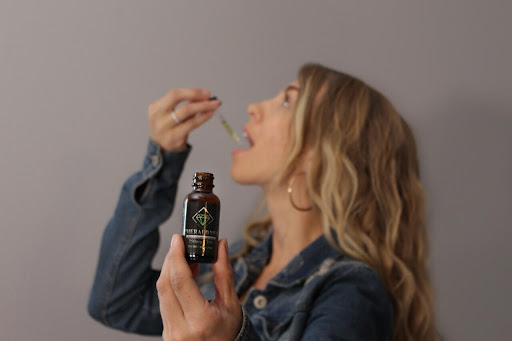Open-water swimming is thrilling, but most importantly, there are significant health benefits associated with swimming in cold water.
You may question the benefits of submerging yourself in freezing temperatures, but plenty are supported by scientific research!
Many cold water swimmers started their journey due to the positive impact swimming in open waters has on their mental and physical health. Cold Water Swim explores the health benefits of cold water swimming.
If you can’t decide whether to give the open waters a chance, you aren’t alone, as it can be daunting at first; however, your body and mind may thank you.
Health Benefits Of Cold Water Swimming
This article explores every well-known and scientifically supported health benefit of cold-water swimming.
Keep reading to learn how this crazy activity can support your mind, body and soul!
Boosts Your Immune System
There have been many studies that focus on the benefits of cold water on your immune system.
Swimming in cold waters causes your core temperature to decline rapidly, which forces your body’s white blood cells to spring into action. Cold water raises your white blood cell count, which is important as a high WBC count supports a well-working immune system.
The dramatic drop in temperature helps your white blood cells remain adaptable, and an adaptive immune system will protect your body from illness.
Increases Endorphins
You may question how bathing in icy waters can increase your mental wellbeing when it seems uncomfortable and unpleasant. Happy hormones, otherwise known as endorphins, are released by your body as you swim in cold waters.
Our bodies produce endorphins when we experience pain as a way of helping us withstand the discomfort. If you are reaching your pain barrier once you are in the open water, try to persevere, as an improved mood will be your reward!
Endorphins are hormones that make us feel mentally and physically great, so adding a cold water swim to your weekly routine will help keep you feeling tip-top. Another hormone that the brain produces while in cold water is dopamine, an additional feel-good chemical.
Boosts Your Metabolism
Cold water swimming may help you drop pounds, as cold water helps increase your metabolism. As the icy water lowers your core body temperature, your heart rate rises to try and keep you warm, so as a result, you burn calories.
Recent scientific research has consistently proven that swimmers burn more calories in cold water than in warm water. Dipping into outdoor lakes and rivers could help you lose weight quicker than swimming in an indoor or heated pool.
Another bonus to swimming outside is that it is free; forget about paying extortionate prices for health club memberships and head to your local outdoor swimming spot.
Helps To Reduce Pain And Inflammation
Have you ever placed an ice pack on a sports injury to help reduce pain and inflammation? Well, swimming in cold water can have a similar soothing effect. Studies have shown that submerging in icy water after working out can help combat inflammation, swelling, or pain.
Cold water swimming may not eradicate major pain; however, it may ease any minor aches picked up throughout a strenuous week at work, thanks to the release of endorphins.
So, put your thermal wetsuit on, dip in the water, and chill out!

It Increases Your Libido And Supports Fertility
If your love life lacks fire, a cold water swim could be the unexpected answer! Cold water has been proven to raise oestrogen and testosterone levels, so you may feel friskier than normal after your icy swim. Higher libido can make you feel sexy, confident, and energised.
Scientists have found that increased oestrogen and testosterone can help improve fertility in men and women. So, should you and your partner be trying to conceive or just want to spice up your romance, grab your tow float and get swimming!
Improves Mental Health
Individuals struggling with depression experienced lower levels of stress and despondency when they began swimming in open waters weekly. So, if you have had a stressful day or week, taking a trip to an outdoor lake or river for a dip could significantly improve your mental health. The water’s low temperature and tranquillity can ease an anxious mind, and you may find serenity in the stillness.
Studies have proven the benefits swimming in cold temperatures can have for many mental health issues, including anxiety, depression, and ADHD.
Cold waters can shock the system at first; however, the icy temperature forces you to focus on controlling your breathing which calms your nervous system.
Helps With Menopause Symptoms
Menopause often comes with many unwanted symptoms, including migraines, anxiety, reduced libido, memory loss, and hot flashes. Cold water swimming helps raise libidos, lower stress levels and eradicate painful headaches.
A group of menopausal women from Swansea swim together weekly, and they spoke with the BBC to explain how much their lives have improved as a byproduct! Many women of all ages enjoy swimming in cold water; you should only take caution if you have serious health conditions or are pregnant.
Soothes Your Vagus Nerve
The vagus nerve has a primary role in kicking off your fight or flight response, heightening anxiety symptoms. Additionally, the vagus nerve is responsible for helping to maintain all essential organs.
If your vagal tone is high, your body struggles to relax physically after periods of stress due to the parasympathetic nervous system functioning well.
Cold water swimming soothes your vagus nerve, which means your body will relax more efficiently as your heart rate will drop faster and your intestinal and glandular production raises quicker.
Improves Circulation
Swimming in chilly waters can improve circulation as the cold temperature forces blood to the surface of veins, capillaries, and arteries.
Over time, your body will adjust to cold environments, including freezing waters, so the more often you position yourself in winter temperatures, the less pain you may feel.
As your circulation improves, your body starts to relax and adapt to the cold water, so while your first open-water plunge may seem daunting, it will only become easier and easier.
For older individuals, frequent cold water dips can be extremely beneficial, as they will help you prepare for the colder months. Adapting to colder extremities can make harsh winters easier to handle and lower the risk of winter-related illnesses.
We urge individuals of every age to try cold water swimming, as the health benefits are undeniable.
It’s A Full-Body Workout!
Whether you want to go for a leisurely swim or push your limits, cold water swimming is a form of exercise. An easy way to warm up while swimming in cold water is to exert higher energy levels, so many swimmers like to do laps in lakes, rivers, or the sea.
Swimming is a popular form of exercise as it can help individuals maintain an optimal fitness level; it improves endurance, muscle strength, and cardiovascular activity.
By swimming in cold water, you can lose weight, improve your definition, and increase your overall physical health while enjoying yourself with fellow adventure seekers.
Wetsuits are an important equipment to own if you want to lower the risk of cold water shock.
Enjoy The Sense Of Community
In many locations across the United Kingdom, wild water swimming groups meet to challenge themselves physically and focus on their mental wellbeing.
As humans, we benefit from socialising and forming friendships, so joining a community with similar interests can build confidence.
Community groups support friendship and comradery, which have been proven to benefit our mental health as we keep our socio-emotional requirements. Social connectedness has even been recorded as increasing our self-value.
You may laugh at the expressions swimmers pull as they first touch the icy water, connect over hot cups of tea, and create lifelong friends with like-minded interests.

FAQs
Can You Get Hypothermia From Cold Water Swimming?
You can suffer from hypothermia due to extended bouts of cold water immersion; however, there are ways to cold swim safely with lower levels of risk.
- You are more susceptible to hypothermia if you are tired or dehydrated. To reduce risk, ensure you never enter the water if you feel fatigued. You should also ensure that you drink plenty of water before a cold swim.
- Once you exit cold water, you must warm up quickly by drying off with a towel, putting on thermals or a dry robe, sipping on a hot beverage, and putting on a hat.
- Avoid dipping your head below the water, as this will help maintain your body temperature. Other equipment to help maintain your core temperature whilst in the water include neoprene gloves, a quality wetsuit and a neoprene swimming hat.
- Make sure you remove any wet clothing, including your swimming costume or trunks, as soon as you get out of the water and change into dry and thermal clothing.
How Long Is It Safe To Swim In Cold Water?
Any newbies to cold water swimming may want to limit their swims to a maximum of ten minutes, as their bodies may take a while to adjust.
Once you feel more comfortable with your capability, you can increase your time in the cold water. Still, swimming in icy conditions for much longer than 45 minutes isn’t advisable, even if you consider yourself a professional cold-water swimmer.
After a short period in the cold conditions, you should start to warm up as your body adapts; however, should you stay consistently and uncomfortably cold after around five minutes, this is a sign to exit and warm up.
Does Cold Water Swimming Affect Your Blood Pressure?
Research into cold water swimming and blood pressure levels has found no significant correlation, which suggests that low temperatures are unlikely to affect an individual’s blood pressure.
How Many Calories Do You Burn In Cold Water Swimming?
Research has suggested that men burn around 517 calories swimming in cold water compared to 505 calories in warmer water.
While the change isn’t extensive, this research suggests that swimming in the cold incites a more vigorous reaction from the body.
Why Does Cold Water Swimming Make You Tired?
Cold water swimmers often use their muscles for swimming, floating and wading, which can increase fatigue levels after lengthy periods.
In cold water, the body exerts energy to maintain your core temperature and keep you warm. So, it is normal for cold water swimmers to feel fatigued after a dip in icy conditions.
Ensure to warm up properly when you leave the waters with warm and dry clothes.
Summary
This article has explored the health benefits of cold-water swimming. Cold water swimming is becoming increasingly popular for any age as individuals are beginning to understand the advantages of going for a dip in the cold.
Swimming in open waters is a great hobby if you want to better your health or see if you are brave enough to dunk your head.



